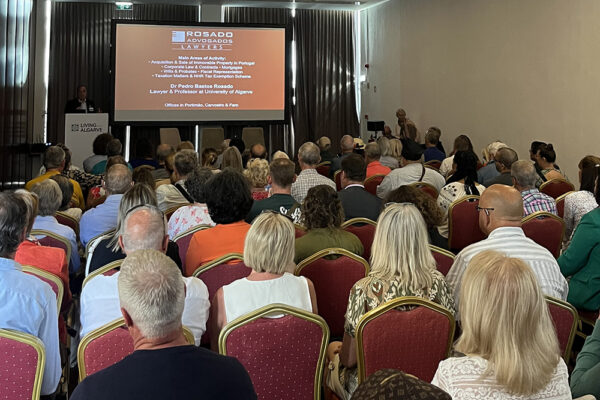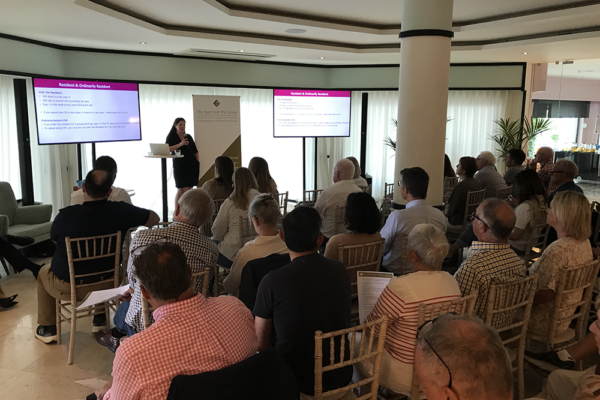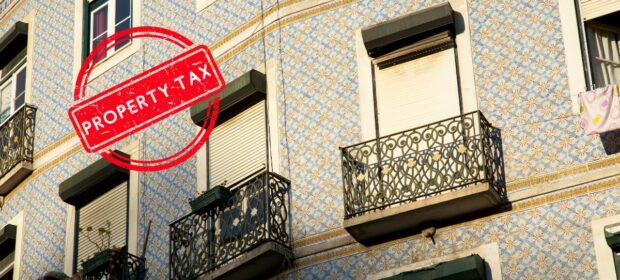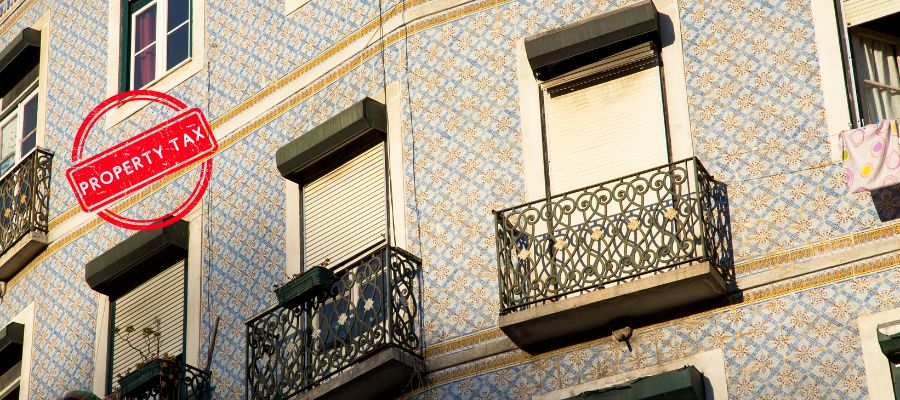Exchange Traded Funds
By Portugal team
This article is published on: 16th August 2024

Difficult times
With high levels of inflation and relatively low rates of returns on cash deposits, it is important to make sure your money is working hard for you.
In order to do this, investors will look to “real” investments i.e. assets that are expected to grow above the rate of inflation over the longer term – the main contenders are shares, bonds and property.
Make your money work harder
Whilst you can purchase individual investments direct, most investors choose to invest through a collective investment where you pool your money with other investors into a larger pot and appoint a fund manager to run this pot for you – in doing so, your combined value is larger and you can spread your investments much more widely which reduces risk. For example, the Vanguard LifeStrategy fund has approximately 22,000 underlying holdings.
‘Active’ versus ‘passive’ management
Active investors appoint a fund manager such as Fidelity or BlackRock to run the fund on their behalf and pay the manager a fee, typically between 1-2% per annum.
The alternative is to simply buy a basket of investments through a ‘tracker’ or passive fund – in this way, your fund will simply grow in line with the performance of the investments within the basket and do not have the personal involvement (and cost) of a fund manager overseeing the fund.
Examples of common trackers are those that mirror the S&P500 or FTSE100 indices, which are the largest companies trading on the US and UK stock markets respectively.
More money in your pocket with ETFs
ETFs are tracker funds that trade on a stock market and the major advantage is the extremely low fees, with annual charges on some ETFs as low as 0.01%. The savings in fees compared with active fund managers can make a substantial difference to the value of your investments over time.
As ETFs are traded in real-time on a stock exchange, they can be accessed quickly, with low costs and they offer access to a wide range of investments, from shares, gold and commodities to AI and environmental funds.

The devil is in the detail
Whilst Exchange Traded Funds certainly have a place in a well-diversified portfolio, there are important considerations when selecting them.
Tracking error – as the sole job of the ETF is to follow the index it is tracking; you must ensure it is following the market accurately. If it fails to track the market it could result in underperformance, and this can be more costly than the fee saving on the management fee.
Skewed risk – be careful that your portfolio is sufficiently diversified e.g. you may think that the S&P 500 is a highly diversified basket because you have 500 different underlying investments but the top 10 holdings make up around 35% of the value of the 500. The risk is very skewed to the big tech firms such as Google, Apple and Meta.
Another example of skewed risk is the MSCI World Index tracker. Although ‘world’ would suggest a globally diversified portfolio around 2/3rd is invested in the US alone.
Counterparty risk – there are different ways of tracking the market. The most secure is “physical replication” whereby the tracker simply holds the underlying investments of the index it tracks i.e. if you buy a FTSE 100 tracker, you will simply hold the 100 shares that make up that index.
The other main way is “synthetic replication” which means the index is tracked by using a complicated financial product supplied by another financial institution. In this situation, you have to think about the additional risk of that counter-party’s financial strength.
Other important points to have clear knowledge of are:
- The size of the fund
- The ETF’s domicile status
- The ETF’s tax residence
- Income treatment
- Currency of the ETF
In short, although Exchange Traded Funds and tracker investments are simple in principle, there are important nuances of which to be aware, especially when considering cross-border investment.
As always, when investing your hard-earned money, take guidance from a professional.
Preparing for the end of your NHR
By Portugal team
This article is published on: 24th July 2024

Many people have been attracted to Portugal by the very advantageous Non-Habitual Residence Regime, but many are concerned about what will happen to their spending power once the normal tax rates are applied. Mark Quinn and Debrah Broadfield look at the planning you should put in place to prepare your finances for the end of NHR.
What is NHR?
NHR is a preferential tax status granted by the Portuguese government to new residents and lasts 10 years. It offers greatly reduced tax rates on foreign-sourced pensions, employment income generated from ‘highly valued’ professions, tax exemption on foreign-sourced rental income, dividends and on real estate capital gains.
What it does not do is protect from capital gains generated from stocks and shares, company sales or dividends received from funds.
What happens after NHR?
You will become subject to standard rates of tax but your tax position will be determined by the planning (if any) you have implemented during the NHR period.
How to take advantage of NHR
The benefits of NHR are not automatic and you must plan to make the scheme work for you. This might involve rearranging your assets and income sources so you can fully take advantage of the tax breaks. For example:
If you are receiving a salary from an overseas company, dividend payments are preferable as these are tax-free, but a salary is taxable at either 20% (if a qualifying profession) or standard scale rates. Additionally, social security contributions will be due on salary payments, but not on dividends.
If you have foreign property you will want to sell this during the NHR period. Whilst rental income is tax-exempt during NHR, post-NHR it is taxable at scale rates. Similarly, capital gains on sale during NHR are exempt, but post-NHR 50% of the gain is taxable at scale rates.
If you are selling a UK company, you would want to structure the sale as a dividend pay-out, rather than a share sale. The former would be tax-free and the latter would be taxed at 28%.
If you have non-Portuguese sourced savings and investments, interest and dividends from direct equities are tax-exempt (strictly, dividends derived from funds are taxable under NHR) but after NHR, they are taxable at 28%. Capital gains however are not protected under NHR. Gains realised e.g. by selling or switching your investments, are taxable – even if you do not have the gain physically paid out to you and they remain within the investment portfolio/ISA/platform. If the investment holding sold was held for more than 365 days the tax rate is 28% but if held for less, then it is taxable at scale rates of tax. The capital gains tax can be mitigated by restructuring these types of holdings within approved tax wrappers.
Pension income is taxable at 10% under NHR (or 0% if you have pre-31st March 2020 NHR). Post-NHR, generally pensions are taxable at scale rates so some individuals aim to deplete their pension over the NHR period. Just bear in mind however that this might not be suitable for everyone, as moving pension savings out will expose them to UK IHT. Do note, that QNUPS are often sold as a ‘silver bullet’ to protecting assets from UK IHT but this is not the case. There is no guarantee of tax-exempt status and HMRC are vigilant when assessing potential tax avoidance on death.

What can you do to plan?
Portugal does offer very advantageous tax breaks for those that use approved long-term savings vehicles, and it is not dependent on your NHR status. These shelter ongoing income and gains from tax and tax is only applied to gains when you make a withdrawal at 28%. Additional tax reductions apply after years 5 and 8 reducing the tax rate to 22.4% and 11.2%. Having said this the right jurisdiction must be chosen otherwise you could be subject to a punitive rate of 35%.
A particular advantage is that the tax reduction time limit is applied to the start date of the structure, not each time monies are added. This means you can start the structure with a small sum and add to it over time say, as you sell foreign property, drawdown your pension or sell a UK company.
The ideal position is to establish the structure when you are at the beginning of NHR so that by the end of the NHR period the structure is at its maximum tax efficiency.
Many individuals draw on their pensions and dividends during NHR tax efficiently and accelerate the drawdown towards the end of the 10 years to fund the tax-efficient investment. They may also sell property or companies during the NHR period and reinvest the proceeds in preparation for the end of NHR. Then after NHR, they switch the income source to the new investment and generally enjoy single-digit or very low double-digit effective rates of tax.
Financial Planning for later life and health concerns
By Portugal team
This article is published on: 13th July 2024

As we age, financial planning and investing take on greater significance, particularly for those facing health challenges such as dementia or other serious illnesses. These circumstances necessitate a comprehensive and thoughtful approach to ensure that financial stability is maintained and that the needs of both the individual and their loved ones are met.
The Importance of Financial Planning
Financial planning for older adults or those with health issues often requires more detailed and forward-thinking strategies compared to younger, healthier individuals. This is because health care costs can be substantial and may increase significantly over time. Furthermore, cognitive impairments like dementia can make managing finances independently increasingly challenging.
A key concern in such situations is the possibility that one spouse may have predominantly managed the household’s finances. If that spouse were to pass away or become incapacitated, the surviving partner might be unprepared to handle complex financial decisions. This gap in knowledge and experience can lead to significant financial difficulties, or even permanent financial loss which is why proactive planning, and the involvement of both spouses, is crucial.
Put your plan in place
- Comprehensive Financial Review: Begin with a detailed review of your current financial status, including assets, liabilities, income streams, and expenses. Think about how these are likely to change in the event of a prolonged illness or on the death of one spouse e.g. will pension income stop or costs of care increase? If assets will need to be sold or will be gifted on a death, what are the tax implications? As this could leave the beneficiary with less than expected. Understanding the full financial picture is essential for making informed decisions and early planning is key to avoid any unexpected outcomes.
- Health Care and Long-Term Care Planning: Consider the potential costs associated with health care and long-term care. This may involve looking into long-term care insurance or earmarking certain investments specifically for medical expenses. Planning for these costs can help prevent the depletion of assets and ensure that care needs are met without compromising financial stability.
- Estate Planning: Ensure that wills, trusts, and powers of attorney are up-to-date. These legal documents are critical in ensuring that one’s wishes are carried out and that there is a clear plan for the management and distribution of assets in the event of death or incapacitation. A well-structured estate plan can help avoid legal complications and ensure that the surviving spouse and other beneficiaries are taken care of according to the individual’s wishes.
- Simplifying Finances: Simplify financial accounts and consolidate where possible. This makes it easier for the surviving spouse or a designated caregiver to manage the finances. Reducing the number of accounts and financial instruments can help streamline management and reduce the risk of oversight or errors.
- Regularly Updating the Plan: Life circumstances and health conditions can change rapidly. It is vital to regularly review and update financial plans to reflect current needs and goals. Regular reviews ensure that the plan remains relevant and effective in addressing changing circumstances.

The Role of Financial Professionals
Given the complexities involved, it is often beneficial to work with a financial professional who can provide objective guidance and help navigate the intricacies of financial planning, especially when health issues are a factor.
You also have the control to choose a trusted professional for you and your loved ones to work with. Doing this ahead of any event can provide comfort, continuity in financial safety and quality of advice, especially for financially inexperienced individuals.
An advisor can help in developing a comprehensive plan that considers both current needs and future contingencies. They can also work alongside other professionals such as lawyers, accountants or your executors, to ensure that all aspects of your financial life are coordinated and optimised.
For those with dementia or other cognitive impairments, actively managing investments can become increasingly challenging and an advisor can take over this responsibility, ensuring that the investment strategy remains aligned with the client’s goals and risk tolerance.
An advisor can also help ensure that the surviving spouse is prepared and supported. This includes educating them about the financial plan and ensuring they know how to access accounts. This support can be invaluable in helping the surviving spouse navigate financial matters during a difficult time.
Conclusion
Financial planning and investing for older adults or those facing health challenges requires a proactive and comprehensive approach. The potential for increased medical costs and the possibility of cognitive decline make it crucial to have a well-thought-out plan in place. When one spouse handles most of the financial matters, it is even more critical to ensure that the surviving spouse is not left unprepared.
By addressing these issues head-on and seeking professional advice, older adults and those with health concerns can safeguard their financial future and that of their loved ones. Proactive planning, regular updates, and professional guidance are the keys to managing the financial complexities that come with aging and illness.
The facts about Domicile
By Portugal team
This article is published on: 19th May 2024

Domicile is a highly complex area of law and one which many misunderstand. For British nationals here in Portugal, it is a key factor in the application of UK inheritance tax (IHT) and often one that is incorrectly planned for.
What is domicile?
Firstly, domicile is not residency and they should not be confused. Domicile broadly determines IHT and residency determines income and capital gains tax.
There is no official definition of domicile (which only adds to the complexity) but a very loose definition is ‘where you have a permanent home’. However, just because you have moved to Portugal, established residency and a home here, it does not automatically change your domicile status.
Domicile is a subjective concept that is usually only challenged once you are gone, so planning correctly during your lifetime and leaving the right evidence behind for your executors is crucial if you intend to make a non-UK domicile claim.
How is it determined?
You can only have one domicile at a time and there are several types, the most relevant for expats are ‘origin’ and ‘deemed’.
‘Origin’ is acquired at birth, usually from your father and is never fully lost. It can be suspended by acquiring a new domicile of choice, but it is adhesive and will revive if the new domicile is lost. For example, if you moved to Portugal and satisfied a domicile of choice of Portugal but then moved to France, your UK domicile would revive on the move to France, and you would have to wait and satisfy the requirements again to shed your domicile of origin again – even if you never set foot in the UK again.
Acquiring a domicile of choice involves forming a clear and fixed intention for a new country to be your permanent home and therefore requires permanent residence.

Effects of changing domicile
The worldwide estates of UK domiciles are assessed for IHT in the UK, even if you live elsewhere. This is assessed at 40% tax above the threshold of £325,000 per person.
For non-UK domiciles, only UK-based assets are subject to UK IHT e.g. UK property or company shares. Non-UK domiciles also have a £325,000 exemption per person to set against any UK situ assets.
How to change domicile
The burden of proof lies with the person claiming the change and the standard is particularly onerous.
There is no checklist and your circumstances are looked at as a whole. Some factors that might be considered are family and business ties, location of friends and social interests, location of assets, acquisition of citizenship or languages spoken.
Traps and mistakes to avoid
Non-domiciles by choice with a UK domicile of origin must be very careful with return visits to the UK, especially if they have a second home there.
Incorrectly using IHT shelters such as QNUPS. These are intended to provide pension-saving provisions for non-UK residents but are often misadvised. Therefore, if HMRC deems it has been set up for tax-saving purposes rather than pension income provision it is likely to fail. Some ways these are open to failure are if you have ‘too much’ wealth in there and it is clearly too much to support the level of income you require for retirement, holding the majority of your wealth within QNUPS, or holding assets that cannot provide that income e.g. art or non-let property, just to name a few. HMRC are vigilant so careful planning is required.
Usually, any challenge will come after your death, and it is up to your personal representatives to prove your intentions in life and gather evidence – which may not be possible, so you must ensure your record-keeping and evidence is strong.
Living in the Algarve Free Seminar Event
By Portugal team
This article is published on: 8th May 2024

The event on 23rd May, at the Vila Galé Tavira Hotel is the tenth of a series of seminars that are planned to take place along the Algarve. Organised by the Open Media Group, the Living in the Algarve events provide an excellent opportunity for anyone who is planning to either move to the Algarve or buy a property in the region.
All you need to know about Living in the Algarve
The speakers and event partners are all seasoned experts and local residents who will be on hand before and after the seminar presentations to answer any questions you may have.
When: 23rd May – The two seminar sessions will be held, at 11am and 3pm with identical content, so please choose whichever time suits you best and register for your seminar seats.
What you can expect to learn from our seminar sessions:
- Practical information about living in the Algarve
- How Portuguese taxation can effect you as a foreign resident
- Information about residency (especially for UK and other non-EU nationals)
- An update on the Non Habitual Residency
- Legal aspects about buying a property
- Information on the property market
The above are just a few of the subjects that will be covered. We look forward to seeing you there!




Educational events in Portugal
By Portugal team
This article is published on: 2nd May 2024

Pension, tax & financial planning seminars for British & Irish nationals in Portugal.
Our local team in Portugal (Mark Quinn BA ATT APFS and Debrah Broadfield LL.B LL.M ATT APFS) recently ran two educational seminars in Lisbon and the Algarve regions.
Together with Susan Brooks from Momentum Pensions and Richard Flood with Lorraine Reddaway from RBC Brewin Dolphin they discussed the 2024 tax landscape, retirement planning options, investment solutions and tax strategies for expatriates living in Portugal.
Over the two days we were delighted to welcome over 75 attendees.
Thanks to the staff at the hotels and to everyone for their engaging participation.



Financial workshops in Portugal
By Portugal team
This article is published on: 14th April 2024

Living in Portugal as an expat?
Looking for some direction in your financial and tax planning?
Join us for an educational session as we navigate the complexities of living in Portugal.
Our speakers, including chartered financial Planners, UK & Irish tax advisers and fund managers will be discussing the 2024 tax landscape, retirement planning options, investment solutions and tax strategies for expatriates living in Portugal.
Lisbon area: 24th April 10am to 1pm
Palacio Hotel, Estoril

Algarve: 25th April 10am to 1pm
Magnolia Hotel, Quinta do Lago

Sign up for the workshops below
Property and taxes in Portugal: confused?
By Portugal team
This article is published on: 10th April 2024

Capital gains tax is charged on the sale of all property sold by a Portuguese tax resident, irrespective of where the property is located, or if it was your main residence or not. Capital gains tax is also payable by non-residents who sell property located in Portugal.
Selling your main home in Portugal
If you are a Portuguese tax resident and sell your main home in Portugal, it may come as a shock that capital gains tax is due on the sale (unless the property was purchased before 1st January 1989, in which case no capital gains tax applies).
When calculating the gain, you can deduct costs such as legal and agent fees, and if the property was held for more than 2 years you can apply inflation relief. 50% of the resulting gain is added to your other income in the tax year and taxed at scale rates of tax (13.25% to 48%, plus solidarity tax).
Despite the potential for high taxation, if the property sold was your main home, there are two reliefs you can take advantage of to reduce or eliminate your tax bill:
- Reinvest the net sale proceeds into another main home in Portugal, or EU/EEA;
- Reinvest the net sale proceeds in an approved long-term savings plan or pension; or
- Use a combination of the above 2 options. This is useful if you wish to downsize.
Any portion of the sale proceeds not reinvested will be taxed.
In order to qualify for the reliefs there are certain conditions that must be met, such as timescales and reporting to adhere to.
Reinvestment into long-term savings or a pension
The above is all well and good if you want to buy a new property valued at the same price as the property you sold, but what if you do not?
The Portuguese government introduced a relatively new relief allowing you to reinvest the proceeds, or a part of the proceeds, in a long-term savings plan or pension, rather than another property.
Again, there are certain rules in order to qualify, but this can be a particularly advantageous option for those wishing to downsize and therefore can use a combination of the reliefs, or move outside of the EU/EEA e.g. back to the UK.
Again, in order to qualify there are conditions and rules that must be met, the most important being that the reinvestment is done within 6 months of sale.
Whether a pension or a long-term savings plan is right for you will depend on your personal circumstances and the structure must qualify in order to obtain the tax relief, so it is important to take advice.

Selling a property in Portugal that is not a main home: residents and non-residents
The tax rules are the same for Portuguese tax residents (even with Non-Habitual Residency (NHR), and non-residents.
If the property sold was purchased before 1st January 1989, no capital gains tax applies.
In all other cases, 50% of the gain is taxable at scale rates of tax with no option for the main residence reliefs described above. Do note if your property has an AL licence, or recently had one, the tax rules are different.
Selling a property overseas as a Portuguese tax resident
For those with NHR, there is no tax due in Portugal during the NHR period, so this is good opportunity to sell property. Outside of NHR and for normal residents, tax is due on 50% of the gain since purchase at scale rates in Portugal. This is the case even if the property was your main home at some point in the past e.g. you sell your property in the UK that was your main home before you moved to Portugal.
Tax will also be due in the country the property is located, but if there is a Double Tax Agreement with Portugal you will not pay tax twice. You will receive a credit for the tax paid in the country the property is located to offset against the tax due in Portugal.
With over 35 years’ experience, Debrah Broadfield and Mark Quinn are Chartered Financial Planners and Tax Advisers specialising in cross-border advice for expatriates. Contact us at: +351 289 355 316 or portugal@spectrum-ifa.com.
Investing: what can you expect?
By Portugal team
This article is published on: 31st March 2024

Due to the increase in interest rates over the last couple of years, cash has been a relatively attractive investment however as rates on deposits become less attractive, more investors are turning to investment portfolios to make their money work harder. But what type of return can I expect from an investment portfolio?
The return you achieve from your portfolio is determined primarily by the make-up of the underlying portfolio i.e. the split between shares, bonds and other assets such as property and commodities etc. This in turn is determined by your tolerance for risk and volatility.
Are investments really ‘risky’
Risk is misunderstood and is often confused with volatility. Risk can be more accurately defined as the chance of permanent loss of capital whereas volatility is simply the degree to which investments move up and down.
Although many feel shares in companies are a “risky” investment, if we look back over the past several decades, we can see the chance of permeant loss is very small when investing in blue-chip companies. These types of companies are in are in the business of trying to make a success of themselves, not run themselves into the ground!
Volatility is what scares most investors, the ups and the downs. But putting this into perspective, most of us own a home and are aware of what the property market does, it goes up and down. But unlike with an investment, you don’t have a ticker on your post box telling you the daily price, so you don’t see the volatility and therefore, do not “feel” the risk.
The reality
Figures from Credit Suisse show that over a 123-year period starting in 1900, shares in developed equity markets have generated returns at 5.1% above inflation and emerging equity markets have achieved 3.8% over inflation.
The Credit Suisse figures also show that shares have outperformed cash (and bonds) in every one of the 21 countries their data covers over that 123 year period.
This is quite remarkable given this period covers two world wars, two global pandemics, the great depression, dot-com bubble, and the global financial crisis!
So, shares could actually be considered lower risk than cash or property because of their proven ability to keep pace with inflation over time and therefore protect your money in real terms.

What steps can you take to stack the odds in your favour?
The return you receive as investor will be determined by a range of factors besides the composition of your portfolio and there are certain steps you can take to increase your return expectations:
Select the right funds
The difference in fund performance can be startling e.g. in a recent analysis we carried out of the US equity sector, the top performing funds was up 67% whereas the worst was down -25%!
Review regularly
Whilst a buy and hold approach is one of the most popular strategies for investors, reviews are essential. Not only to ensure your risk level, asset mix and diversification are in line with your objectives, but also to ensure your portfolio remains relevant. Looking over a 40-year period at the FTSE 100, only 24 companies (or arguably 35 including mergers and acquisitions) are still in the index since 1984.
Minimise fees
Minimising fund management and advisory costs puts more money back into your portfolio and leads to better net performance.
Minimise tax
With interest, dividends and capital gains tax at 28% for standard residents (note, 28% capital gains tax does still apply to Non-Habitual Residents), tax is one of the biggest eroders of investment return. So, give some thought to how you hold your portfolio and take advantage of the different tax “wrappers” available to Portuguese tax residents but keep an eye on fees and only seek advice from qualified advisers.
Tax tips in Portugal
By Portugal team
This article is published on: 29th March 2024

Did you know…?
Understanding what is taxable here in Portugal and at what rate, can be confusing. With a lot of incorrect, out of date or just misunderstood information out there, we take a look at the commonly misreported points.
0% NHR tax on interest & dividends?
Those with the advantageous NHR status (Non-Habitual Residency) are well aware that foreign interest and dividends are taxed at 0%. But what many do not realise is that this does not apply to funds.
Most people are invested in funds or ETFs, rather than direct stocks, and interest or dividends arising from these are not tax exempt under NHR.
Tax, even if you don’t take withdrawals?
Another misconception is that if you do not take a withdrawal from your investments, you do not have to declare income/gains and pay tax.
Unless your investments are within a pension structure or an offshore bond, income, dividends and gains are taxable on an arising basis i.e. if a fund is sold/switched. It does not matter that you have not physically had anything paid to your bank account or nothing has been withdrawn from the investment. The tax office are increasingly challenging investors in this respect, so it is important to check that you are making the right declarations in Portugal.
Short term capital gains
From 1st January 2023 any gain arising from the disposal or transfer of shares/securities held for less than 365 days will be taxed at progressive rates of income tax i.e. 48% plus 2.5%/5% solidarity tax, if your total taxable income (including the gain) is more than €81,199.
Shares/securities held for more than 365 days, or where your total taxable income including the gain is below the threshold, the standard tax of 28% will apply.
This is important if you or your investment adviser is trading, rebalancing or switching regularly.

I can pay tax in the UK (or elsewhere)
Portuguese residents must declare and pay tax in Portugal on worldwide income and gains. Individuals commonly think that they can continue to pay taxes in the UK as Portuguese tax residents or choose where to pay taxes on certain assets.
Whilst certain income/gains do remain taxable in the UK i.e. those arising from real estate, this must still be reported in Portugal and any relevant tax due paid. A credit is given for tax paid in the UK, so you will not pay tax twice.
Another common error is pension income. This is taxable in Portugal, not the UK, even if the pension is a UK pension. The only exception to this is government service pensions e.g. teachers, local government, police etc. The UK State Pension is not a government service pension and is therefore taxable in Portugal, not the UK.
I can take my 25% tax free cash from my UK pension
Whilst the UK will record the drawdown as tax-free cash (PCLS) for UK purposes, this is a UK tax break for UK tax residents. Portuguese residents receiving their “tax-free cash” will be taxed on the lump sum as standard pension income in Portugal.
Capital gains tax on properties with AL licenses
The standard rule on property sales for Portuguese tax residents is, 50% of the gain is taxable at scale rates. This is the same if you are selling a property in Portugal or overseas.
If the property you are selling has been your main home in Portugal for at least 2 years, you may be able to qualify for the main residence reliefs and reduce or eliminate the capital gains tax.
If the property has an AL license however, the tax on sale is applied to 95% of the gain, not 50%. Individuals would have to wait 3 years following the cancellation of the AL license to benefit from the standard rates of tax.
Tax efficient structures?
When utilising tax efficient structures it is important to consider the tax consequences. Some structures only tax gains and others do not distinguish between capital and gains.
A common example is a simple platform or bond; here only gains are taxed, however a trust or QNUPS taxes the capital and the gain. So with the latter, you will pay tax even if you have not made a gain or made a loss!


